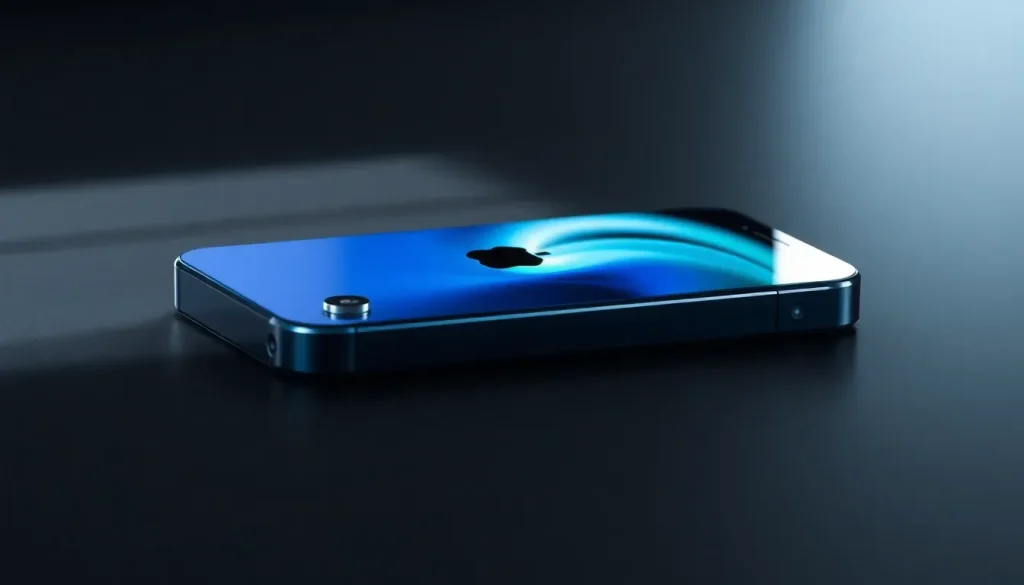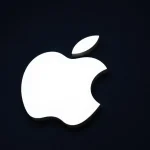iPhone 17 Pro Max mejora en detalles sin inteligencia artificial

Each year, Apple generates a buzz in the technology market with the launch of its latest smartphone lineup. This time, we're diving into the details of the iPhone 17 Pro Max, the new flagship device from Cupertino. With its cutting-edge Apple A19 Pro processor and a large 6.9-inch Super Retina XDR display, the iPhone 17 Pro Max is poised to impress. However, its design has reverted to an aluminum chassis instead of the titanium used in the previous generation. As we explore the review, we will discover whether the incremental improvements are enough to warrant an upgrade for loyal Apple users.
Technical specifications of the iPhone 17 Pro Max
| iPhone 17 Pro Max | |
| Design | Front glass with Ceramic Shield 2 Toughened glass back available in white, cosmic blue, or orange Unibody aluminum chassis IP68 certification (up to 6 meters depth for 30 minutes) |
| Display | 6.9 inches - Super Retina XDR – OLED 2,868 x 1,320 pixels (19.5:9, 460 PPI) ProMotion with adaptive refresh rate up to 120 Hz HDR – True Tone – Wide color gamut (P3) Haptic feedback Contrast: 2,000,000:1 (typical) 1,000 nits - 1,600 nits HDR - 3,000 nits peak Dynamic Island Always-on display |
| Processor | Apple A19 Pro (TSMC N3P) 2 performance cores 4 efficiency cores 16-core Neural Engine |
| Graphics | 6-core GPU with neural accelerators Ray tracing with hardware acceleration |
| Memory | 12 GB RAM |
| Storage | 256 GB / 512 GB / 1 TB / 2 TB |
| Rear Cameras | Pro Fusion camera system of 48 megapixels Main Fusion camera of 48 MP (24 mm - f/1.78) 48 MP ultra-wide angle (13 mm - f/2.2 – 120º) 48 MP telephoto Fusion 4K video recording at 120 FPS (HDR, Dolby Vision) |
| Front Camera | Center Stage 18 megapixels |
| Battery | 4,823 mAh Up to 37 hours of video playback Fast charging 40W (50% in 20 minutes) 25W MagSafe wireless charging |
| Operating System | iOS 26 with Apple Intelligence |
| Connectivity | Nano-SIM 5G (sub 6GHz and mmWave, MIMO 4x4) + eSIM Wi-Fi 7 Bluetooth 6 + NFC USB-C 3rd Gen (10 Gbps, DisplayPort 4K) |
| Dimensions | 163.4 x 78 x 8.8 mm Usable surface: 91% |
| Weight | 231 grams |
| Other Features | Stereo speakers and three microphones with ANC Accident detection and SOS via satellite LiDAR scanner, gyroscope, accelerometer, barometer Proximity sensor and dual ambient light sensor Face ID, Siri, Apple Pay |
Unboxing and Accessories
The unboxing experience of the iPhone 17 Pro Max is as streamlined as ever, maintaining the characteristic slim cardboard box that Apple has favored since discontinuing the inclusion of chargers. Inside, you will find the documentation in multiple languages, a white braided USB-C charging cable for battery charging and connecting to a PC or Mac, and the SIM tray ejector pin. However, it's disappointing to note the absence of the traditional Apple logo sticker.
Exterior Design with Aluminum Chassis
Once unboxed, the iPhone 17 Pro Max presents a familiar design at first glance. Measuring 163.4 x 78 x 8.8 mm, it is slightly thicker than its predecessor, accommodating a larger battery, which also contributes to a slight increase in weight to 231 grams. The display occupies 91% of the front surface, framed by gently curved corners and the highly publicized Dynamic Island around the front camera notch.
The rear design showcases the most significant aesthetic changes, particularly with the return to a unibody aluminum chassis instead of titanium. While this aluminum design is less scratch-resistant, it aids in better heat dissipation. Available color options include a striking cosmic orange, which draws attention to the latest iPhone. Notably, the camera island is integrated into the chassis, providing a seamless look.
Super Retina XDR Display
While the external changes may be subtle, the iPhone 17 Pro Max retains its remarkable 6.9-inch Super Retina XDR display. This OLED panel delivers a resolution of 2,868 x 1,320 pixels (19.5:9) with a pixel density of 460 PPI, ensuring impressive image clarity. The ProMotion technology allows for an adaptive refresh rate of up to 120 Hz, enhancing both autonomy and the always-on display feature.
One notable improvement is the maximum brightness, now reaching an impressive 3,000 nits, surpassing the previous generation's 2,000 nits. It maintains HDR capabilities at 1,600 nits and standard brightness at 1,000 nits, along with a typical contrast ratio of 2,000,000:1 and 100% coverage of the P3 color gamut.
The Dynamic Island feature remains, enhancing user interaction and providing notifications without cluttering the display.
Buttons and Connectivity
Moving on to the edges of the iPhone 17 Pro Max, we notice its well-placed buttons. The left side features a customizable action button along with the volume buttons and the SIM tray for a 5G Nano-SIM. It supports dual eSIM but sacrifices the physical SIM option in that configuration.
The right side houses the classic lock button and the Camera Control introduced in the previous generation. This button functions as a camera shutter, allowing users to focus and capture images seamlessly.
At the bottom, the USB-C 3rd Gen port makes a return, enhancing data transfer speeds. The device also upgrades to Wi-Fi 7 and Bluetooth 6, while retaining NFC connectivity. Interestingly, only one of the two speaker grills at the bottom houses the right speaker, while the left speaker is positioned above the display. The stereo speakers support Dolby Atmos for an immersive audio experience.
Apple A19 Pro Processor
Let's delve into the heart of the iPhone 17 Pro Max: the new Apple A19 Pro processor, manufactured by TSMC on the N3P node. While it bears the "new" label, it's essentially an enhanced version of the A18 Pro, maintaining its configuration of 2 high-performance cores and 4 high-efficiency cores, albeit with slightly higher clock speeds and an upgraded 6-core GPU with neural accelerators. The addition of 12 GB of RAM represents a significant upgrade from the previous model's 8 GB.
The performance of the A19 Pro is impressive, achieving 2,401,223 points on Antutu, translating to a 22% performance improvement. Geekbench 6 shows a 16% increase in single-core and a 22% boost in multi-core performance. This processor is optimized well, providing a seamless user experience.
For gaming enthusiasts, the A19 Pro delivers a 7.6% improvement in 3DMark Wild Life Extreme and a notable 36% in 3DMark Steel Nomad. Though the performance does not surpass the Snapdragon 8 Elite, it is more than sufficient for smooth gaming.
The iPhone 17 Pro Max now offers up to 2 TB of storage, in addition to previous options of 1 TB, 512 GB, and 256 GB. While the storage options are plentiful, the quality of the ROMs appears lower than those found in high-end Android devices.
Cameras of the iPhone 17 Pro Max
The iOS 26 update brings several aesthetic changes to the Camera app, while maintaining quick access to video and photo modes. Users can customize their preferences for 12 or 14 megapixels, select video resolutions, and engage in professional modes like ProRAW and ProRes. The camera control button retains its functionality from last year, although some users may still find it unconvincing.
Front Camera for Selfies
Significantly, the front camera has seen a substantial upgrade from its predecessor. Featuring a Sony IMX914 18-megapixel CMOS sensor with f/1.9 aperture, it provides high-quality selfies. This camera allows for 4K video recording at 60 FPS and a centered image function for better video call experiences.
Rear Cameras
Overall, the iPhone 17 Pro Max retains the camera configuration from the prior model, but with notable enhancements. It boasts three sensors:
- Main camera with Sony IMX903 48-megapixel sensor, featuring f/1.6 aperture and 1.22 µm pixel size. It includes second-generation sensor-shift image stabilization.
- Ultra-wide camera with Sony IMX972 48-megapixel sensor, having f/2.2 aperture and 0.7 µm pixel size.
- 4X telephoto with Sony IMX973 48-megapixel sensor, featuring f/2.8 aperture and 0.7 µm pixel size, along with 3D sensor-shift optical image stabilization.
One noteworthy change is the shift from a 5X to a 4X telephoto lens with double the resolution, enabling pixel binning for an effective 8X hybrid zoom and a digital zoom of up to 40X. The inclusion of a LiDAR sensor enhances focusing accuracy, while the LED flash is slightly offset, which can create shadows in close-up shots.
Image processing remains a strong point for Apple, delivering realistic colors and a wide dynamic range without overexposing highlights or losing details in shadows. However, automatic switching between sensors can be inconvenient, especially when transitioning between the main and ultra-wide sensors.
Comparison with the iPhone 16 Pro Max's Camera
Comparing the camera capabilities of the iPhone 17 Pro Max to the iPhone 16 Pro Max, differences become apparent primarily when using the telephoto lens. The upgraded sensor ensures that images taken are of higher quality, meeting the standards expected from a flagship smartphone.
Video Recording
The iPhone 17 Pro Max continues to impress with its capability to record video in 4K at up to 120 Hz. It supports HDR and Dolby Vision recording, benefiting from stabilized optics to minimize shakes. A new dual capture feature allows simultaneous recording with both the main and front sensors, ideal for content creators.
Operating System iOS 26
With the launch of the iPhone 17 series, Apple introduces iOS 26, marking a significant shift in their versioning strategy to unify their OS nomenclature across all devices. A major visual change comes with the introduction of Liquid Glass, featuring transparent icons that have sparked much debate due to their visibility challenges.
Beyond the visual changes, the system retains features like Apple Intelligence, although its functionalities remain limited in Europe. Meanwhile, Siri continues to be relatively basic, though a new spam call filter has been added. Users can now customize their lock screens with 3D effects and enjoy new emojis.
Autonomy
The iPhone 17 Pro Max is powered by a 4,823 mAh battery, a slight increase from the 4,685 mAh of its predecessor. Apple claims up to 37 hours of video playback; however, practical usage reveals approximately 7 hours of screen time and up to two days of autonomy, which are impressive figures. Fast charging can fill the battery to 50% in about 30 minutes, but reaching a full charge takes roughly an hour and a quarter.
Availability and Pricing
The iPhone 17 Pro Max is available, starting at a price of 1,469 euros for the 256 GB version. Upgrading to 512 GB costs 1,719 euros, while the 1 TB model is priced at 1,969 euros, and the premium 2 TB version goes for 2,469 euros. Despite the high entry price, the significant leap in storage capacity comes with steep price increments, likely pushing users toward iCloud subscriptions.
Key Advantages and Drawbacks
| Key Advantages | |
| + | Incremental improvements enhance an already excellent device |
| + | A19 Pro processor with a 25% performance boost |
| + | Maintains the outstanding 6.9-inch Super Retina XDR display |
| + | Photography enhancements, especially in the telephoto lens |
| + | Superb 4K video recording at 120 Hz, ideal for creators |
| + | Highly optimized iOS 26 system with efficient battery management |
| + | Advanced connectivity with Wi-Fi 7 and Bluetooth 6 |
| Key Drawbacks | |
| - | High price, especially for higher storage capacities |
| - | Return to aluminum is a step back, making it more prone to scratches |
| - | Lack of significant artificial intelligence features |
In summary, the iPhone 17 Pro Max stands out as a remarkable device, even though it embodies a more incremental upgrade from its predecessor. The improvements in processing power and photography make it a noteworthy option for those seeking a premium smartphone experience, even if the absence of cutting-edge artificial intelligence is still felt. The exceptional Super Retina XDR display remains a significant selling point, ensuring that users enjoy a visually stunning experience.
From El Chapuzas Informático, we award the Gold Award to the iPhone 17 Pro Max, as despite its continuity, it indeed offers enhancements that refine an already impressive smartphone.




Leave a Reply